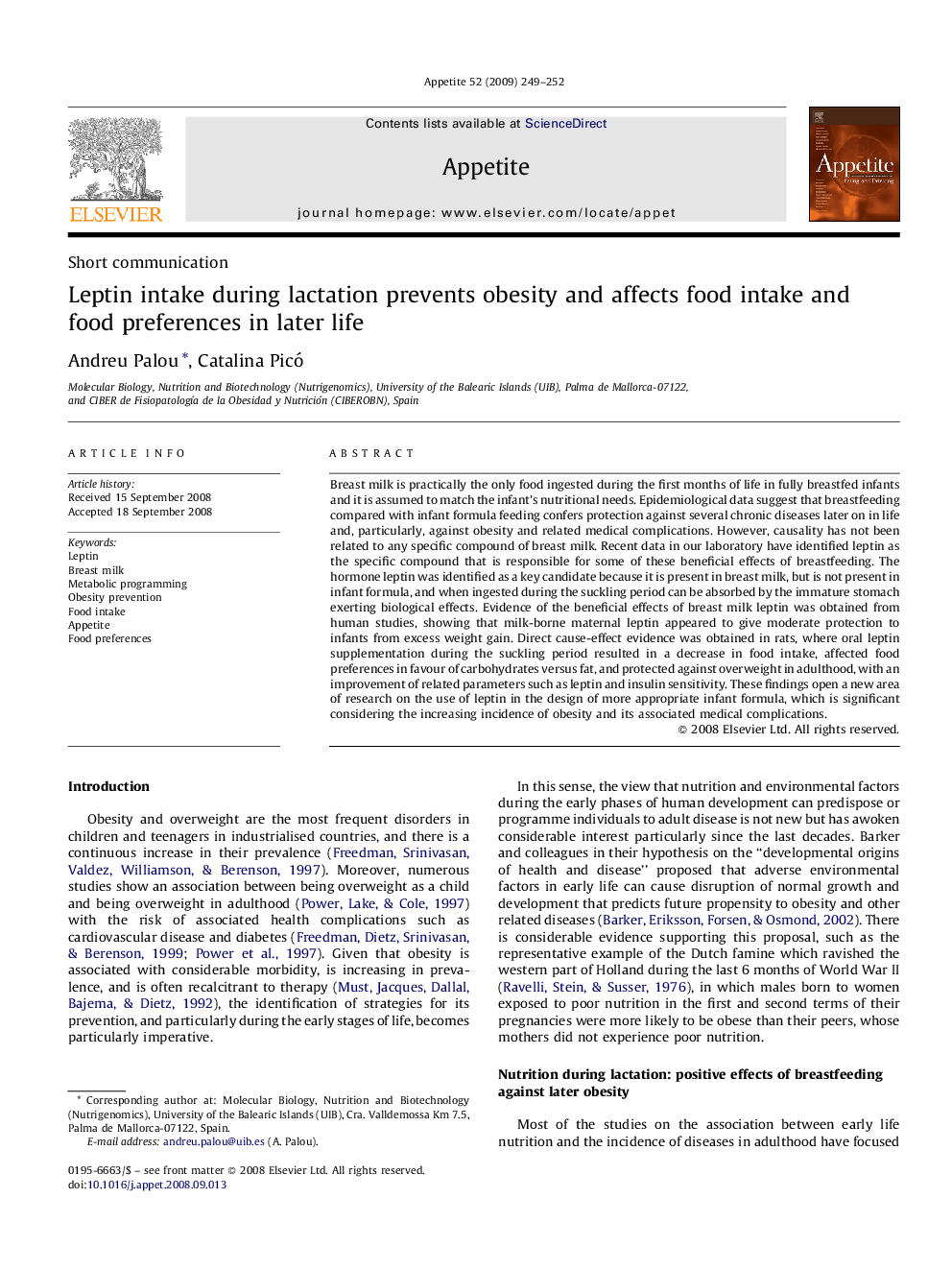| Article ID | Journal | Published Year | Pages | File Type |
|---|---|---|---|---|
| 941143 | Appetite | 2009 | 4 Pages |
Breast milk is practically the only food ingested during the first months of life in fully breastfed infants and it is assumed to match the infant's nutritional needs. Epidemiological data suggest that breastfeeding compared with infant formula feeding confers protection against several chronic diseases later on in life and, particularly, against obesity and related medical complications. However, causality has not been related to any specific compound of breast milk. Recent data in our laboratory have identified leptin as the specific compound that is responsible for some of these beneficial effects of breastfeeding. The hormone leptin was identified as a key candidate because it is present in breast milk, but is not present in infant formula, and when ingested during the suckling period can be absorbed by the immature stomach exerting biological effects. Evidence of the beneficial effects of breast milk leptin was obtained from human studies, showing that milk-borne maternal leptin appeared to give moderate protection to infants from excess weight gain. Direct cause-effect evidence was obtained in rats, where oral leptin supplementation during the suckling period resulted in a decrease in food intake, affected food preferences in favour of carbohydrates versus fat, and protected against overweight in adulthood, with an improvement of related parameters such as leptin and insulin sensitivity. These findings open a new area of research on the use of leptin in the design of more appropriate infant formula, which is significant considering the increasing incidence of obesity and its associated medical complications.
